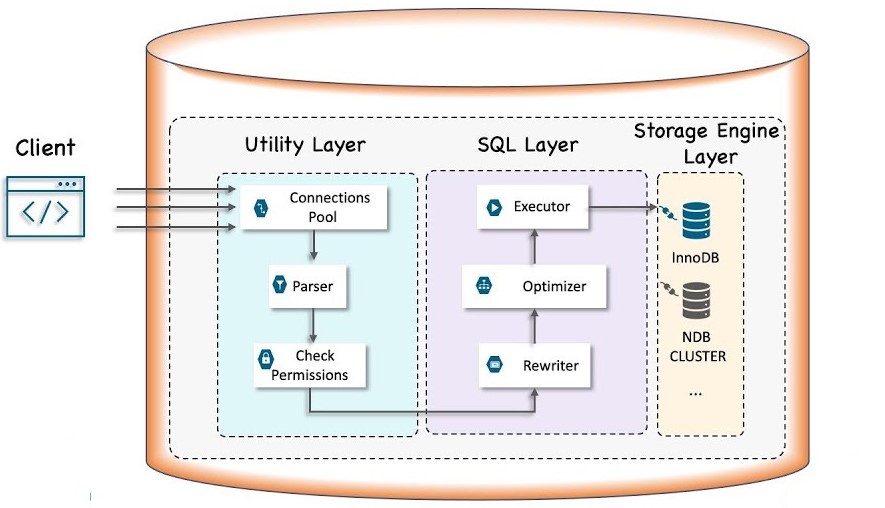Following Key Topics to Cover in Corporate MySQL
Development-
1) Introduction to MySQL
- Overview of Relational Databases
- Features and Benefits of MySQL
- MySQL Architecture and Components
- Installation and Configuration
2) SQL Basics
-
Basic SQL Statements (SELECT, INSERT, UPDATE,
DELETE)
- Filtering and Sorting Data
- Working with Aggregate Functions
- Joining Multiple Tables
3) Advanced SQL Queries
- Subqueries and Nested Queries
- Common Table Expressions (CTEs)
- Window Functions
- Stored Procedures and Functions
4) Database Design and Optimization
- Normalization and Denormalization
- Indexing and Query Optimization
- Performance Tuning Techniques
- Managing Database Constraints
5) Data Manipulation Language (DML)
- Inserting, Updating, and Deleting Data
- Transactions and Locking
- Working with Views and Materialized Views
- Managing Sequences and Identity Columns
6) Data Definition Language (DDL)
- Creating and Altering Tables
-
Defining Constraints (Primary Key, Foreign Key,
Unique)
- Managing Indexes and Views
- Granting and Revoking Permissions
7) Backup and Recovery
- Database Backup Strategies
- Point-in-Time Recovery
- Disaster Recovery Planning
- Backup Verification and Testing
8) Security and Compliance
- Securing Database Access
- Implementing Role-Based Access Control (RBAC)
- Auditing and Logging
-
Ensuring Compliance with Data Protection Regulations
Mastering corporate MySQL development equips
individuals to work with MySQL databases effectively.
This curriculum covers core MySQL concepts, advanced
querying techniques, database design and optimization,
data manipulation, DDL and DML operations, backup and
recovery, and security and compliance. By
understanding these topics, you can contribute
effectively to MySQL projects and enhance your career
prospects in the database management field.



